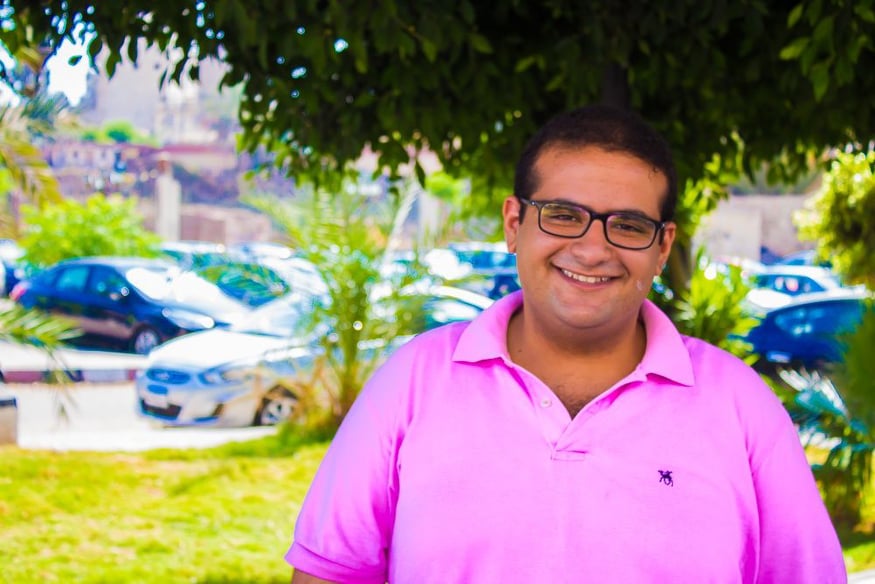لا يمكنك غالباً أن تعرف من أين بدأ الأمر. يكفي فقط أن ينشر أحدهم خبراً عبر إحدى منصات التواصل، يحمل معلومة كاذبةً حول إحدى القضايا التي تشغل الناس، أو حول شخصية مثيرة للجدل، لتبدأ الشائعة بالانتشار كالنار في الهشيم، ويُقبل كثيرون على تداولها، دون البحث عن مصدرها في معظم الأحيان، فالأخبار الكاذبة تكتسب مع الوقت قوة تتماسك حتى أمام حملات التكذيب التي تنطلق فيما بعد ضدها، ربما لأن الكذب دوماً يحمل من الإثارة أضعاف ما تحمله الحقيقة.
استطاعت منصات التواصل الاجتماعي إتاحة المعلومات والأخبار للجميع، بعيداً عن سيطرة الحكومات ومنصّاتها الإعلامية، فكانت -على سبيل المثال- دافعاً أساسياً في تحريك ثورة 25 يناير/كانون الثاني 2011 في مصر. آنذاك انطلقت شرارة فكرة المظاهرات الاحتجاجية ضد نظام الرئيس الأسبق حسني مبارك من خلال صفحة كلنا خالد سعيد، وكانت وغيرها من الصفحات والمنصات الإعلامية الشعبية سلاحاً جماهيرياً يجابه الآلة الإعلامية النظامية التي شيطنت المتظاهرين واتهمتهم بالعمالة. يومها ذهب الإعلام الرسمي إلى إنكار الحراك من أساسه، وراح يعرض مشاهد النيل الهادئ والمراكب الشراعية، التي كان التلفزيون المصري يبثّها للجمهور، بينما عربات الشرطة تدهس المتظاهرين على بعد كيلومترات من هذا المشهد الخلّاب.
وبالعودة إلى ما أتاحته منصات التواصل الاجتماعي، فإن دورها الإيجابي لا يحجب حقيقة أنها أصبحت -عربيًّا وعالميًّا- مصدرًا رئيسيًّا للشائعات والأخبار الكاذبة أو قل المُلفَّقة، مما حتّم تأسيس مبادرات للحد منها.
مكافحة الأخبار الزائفة.. صفحات مستقلة على مواقع التواصل.. مصر نموذجا
عربياً، بادرت بعض الجهات إلى تأسيس صفحات على مواقع التواصل الاجتماعي هدفها التحقق من الأخبار، وتصحيحها إذا ما تطلب الأمر، إلا أن المشكلة تكمن في أن جهود هذه الصفحات غير موحد، ففي مصر على سبيل المثال، توجد بعض المنصات الفردية التي يشرف عليها صحفيون مستقلون، يحاولون تصحيح مسارات بعض التصريحات الصحفية الرسمية ذات الأغراض الدعائية، أو التي تحاول ممارسة "ليّ الحقائق" في بعض الأحيان، منها على سبيل المثال منصة "صحيح مصر"، وهدفها تصحيح بعض تصريحات المسؤولين للوصول بها إلى دقةٍ تسمح بتكوين رأي عام على أساس حقائق مدققة.
صفحة مستقلة أخرى هي أخبار ميتر، إذ ترصد الأخبار في وسائل الإعلام المصرية وتبحث في مدى دقتها ومهنيتها بناءً على منهجية علمية تم تطويرها بمساعدة خبراء دوليين ومحليين في مجال الإعلام والتحقق من البيانات، تتجسد خلاصتها في مجموعة من الأسئلة التي تحدد مدى التزام الخبر بالمهنية وابتعاده عن التضليل والبروباغندا.
تأتي هذه الجهود في ظل تفشي ظاهرة انتشار الأخبار الكاذبة عبر وسائل التواصل التي باتت منبعاً يستقي منه المواطنون أخبارهم اليومية، في عصر "المواطن الصحفي".
لكن يبقى السؤال مُعلَّقًا: متى يمكن لهذه الجهود ذات الطابع المستقل في الوطن العربي أن تعمل بالتنسيق فيما بينها، لتشكل ملاذاً آمنا للتحقق من الخبر أو التصريح، أم أن مصدر قوتها في تركيزها على محليتها وشأنها الداخلي دون أن تتخذ شكلا أكبر؟
غوغل ويوتيوب.. محاولات للحد من نشر الكذب
بعيداً عن مصر والعالم العربي عموماً، كانت المبادرات أكثر اتساعاً وتوحدت الجهود، ففي مارس/آذار 2018 أعلنت شركة "غوغل" العالمية التي تمتلك موقع "يوتيوب"، عن مبادرة أسمتها "مبادرة أخبار غوغل"، بحسب ما أورده موقع صحيفة "نيويورك تايمز" في تقريرها، حيث صرّح كبير مسؤولي الأعمال في "غوغل" فيليب شندلر بأن الأخيرة تعتزم إنفاق 300 مليون دولار على مدار السنوات الثلاث المقبلة، في مبادرة منها لدعم الصحافة الموثوقة، كخطوة لمكافحة وباء انتشار المعلومات الخاطئة وغير الموثوق بها عبر الإنترنت. كل هذا يأتي بينما تشتد وتيرة الحملات التي تتهم القائمين على منصات التواصل الاجتماعي بترك الباب مفتوحاً أمام تداول الأخبار الكاذبة.
وأمام هذه الحملات الشرسة، تواصل "غوغل" محاولاتها في إبداء حُسن النيّة والصدق في محاربة تداول الأخبار الكاذبة عبر منصاتها، إذ تساعد الشركة العالمية في إنشاء مختبر باسم " مختبر ديزينفو" (Disinfo Lab) بالشراكة مع مدرسة "هارفارد كينيدي" (Harvard Kennedy School)، على أن يعمل المختبر على بلورة آلية جديدة تقوم بتنقية الأخبار المتداولة على منصات "غوغل" المختلفة للقضاء تدريجياً على تداول الأخبار الكاذبة، لكن هذا لم يضع حداً لانتشار هذه الأخبار ولم يحل دون تزايد المخاوف من تأثيرها.
مخاوف الاتحاد الأوروبي ولعبة الانتخابات
خاطبت المفوضية الأوروبية مسؤولي "فيسبوك" و"غوغل" و"تويتر" لاتخاذ إجراءات حاسمة ضد ظاهرة انتشار الأخبار المزيفة، كما يورد تقرير نشره موقع "فوربس" الأميركي. وبالفعل تلقت المفوضية الأوروبية تقارير أولية من الشركات الثلاث عن جهودها، وقد جاءتْ أولى خطوات الحل عبر مذكرة تفاهم وقعتها الشركات الثلاث مع الشركة المسؤولة عن المتصفح "موزيلا فايرفاكس" لمكافحة الأخبار الكاذبة على منصاتها.
وقد تَولَّد عن توقيع هذه الاتفاقية بعض التأثير الإيجابي بالفعل، خصوصاً في إزالة بعض الحسابات المزيفة، والحد من ظهور المواقع التي تعزز بث المعلومات المضللة. ومع ذلك، لا تزال المفوضية الأوروبية تسعى لإلزام الشركات الثلاث باتخاذ إجراءات إضافية لضمان الشفافية الكاملة، خصوصًا في الإعلانات السياسية. يأتي هذا بينما يقترب موعد انعقاد الانتخابات في عدد كبير من الدول الأعضاء بالاتحاد الأوروبي، في حين لا تزال فضيحة التلاعب وتوجيه الناخبين خلال الانتخابات الأميركية الأخيرة عالقة في الأذهان.
شكوك مبررة
في مطلع العام 2018، خرج مؤسس "فيسبوك" مارك زوكربيرغ بتصريحات يؤكد فيها عمله وفريقه على خلق بيئة صحية للتواصل بين الناس بعدما انحرف الموقع عن مساره الأصلي بسبب ما تبثه الصفحات العامة من أخبار كاذبة ومنشورات تؤثر سلباً على ثقة المستخدمين، مؤكداً أنه سيستخدم الخوارزميات لتصحيح هذه الأخطاء.
بدا الموضوع حينها غامضاً للعامة، إلى أن بدأت الصورة تتضح تدريجيًّا، على لسان بعض المتخصصين في هذا المجال، إذ الغرض من استخدام الخوارزميات لم يكن تحويل فيسبوك إلى بيئة صحية للمستخدمين كما ذكر مؤسسه، إنما كان الهدف تحليل شخصيات المستخدمين من خلال ما يُعجَبون به وما يتابعونه، وحتى من خلال محادثاتهم، واستخدامها في ما بعد لتوجيه الإعلانات.
إذاً، فالحملة التي تم إطلاقها تحت شعار "جعل فيسبوك موقعاً أكثر إنسانية"، اتضح فيما بعد أنها تولي أهمية كبرى لغرضها التجاري، وهنا يبرز التساؤل حول جدية وصدق الحملات التي تقودها منصات التواصل المختلفة تحت شعار "محاربة انتشار الأخبار الزائفة"، خاصة أن الوقائع تشير إلى أن هذه الجهود المُعلنة قد تتعارض مع مصالح سياسية وتجارية من المؤكد أن لها الأولوية في الغرف المغلقة، بينما الشعارات البرّاقة تُحاك في العلن.








































